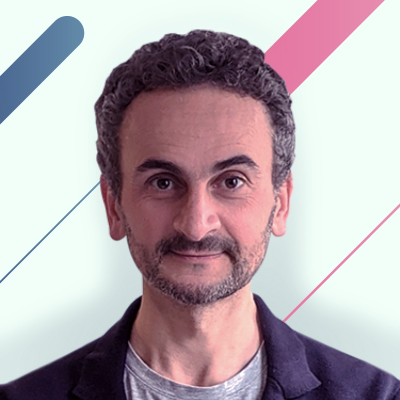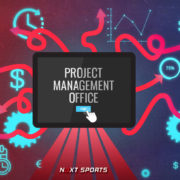Insights from Mounir Zok

There is a revolution taking place within Spanish football. The €1.994 billion investment deal approved in December between the private equity firm CVC Capital Partners and LaLiga Impulso, a venture set up by the governing body for Spanish football’s top two divisions, has been extended to include the four clubs newly promoted to LaLiga SmartBank’s second tier.
At the time of this report, Albacete, FC Andorra, Racing Santander, and Villarreal B have become the latest properties to sign up. This increases LaLiga Impulso’s membership to 42 clubs, including the four clubs (Amorebieta, Fuenlabrada, Alcorcón, and Real Sociedad B) which fell out of the Segunda Division and were relegated to Spain’s 1RFEF third tier following the 2021/22 season.
It’s important to note that both Villarreal’s and Real Sociedad’s affiliated ‘B’ teams are treated as separate entities from their respective parent clubs, as per LaLiga’s agreement with CVC. This gives an indication to the detail of the CVC deal and the importance of modernization that LaLiga envisions at every level of the football pyramid.
As professional European club football returns to the pitch this month, many of Spain’s top clubs are already undergoing their own digital transformation as part of the CVC arrangement.
This article breaks down what the CVC deal means for the future of Spanish football and one of the biggest sporting commodities on the planet. And, perhaps more importantly, where LaLiga goes next as its clubs look to digitize their business proposition.
WHAT DOES THE CVC DEAL COVER?
An initial cash injection worth €400 million was received by LaLiga clubs in January, while 90 percent of the governing body’s professional teams have agreed to join the venture. Several entities have already allocated funding towards infrastructure projects, including the integration of digital and mobile solutions designed to enhance their respective fan and partner relationships.
This forms part of LaLiga’s push to develop its leagues and stakeholder clubs, whereby 70 percent or more of CVC’s investment given to each club is strictly designated for strengthening areas such as its stadium infrastructure and its digital ecosystem. This covers anything from a club’s investment in new technology, innovation, internationalization, as well as brand and commercial development.
In addition, 15 percent of allocated funding is available to help reduce a club’s financial debts if they choose to, while a further 15 percent can be used for player signings in the transfer market. As part of the deal, CVC has acquired an 8.4 percent stake – for the next 50 years – in LaLiga Group, a new entity launched in February, which covers revenues for LaLiga’s broadcast rights.
WHAT ARE THE FIRST STEPS TO A CLUB’S TRANSFORMATION?
Before LaLiga Impulso member clubs are able to allocate the funds to their respective infrastructure developments and digital transformation projects, they must undergo a meticulous process that identifies the different phases and processes of their proposal.
- The first phase includes the analysis of both the areas of development the club would like to address and its current situation.
- The second phase then focuses on planning, including the review of the club’s existing infrastructure and digital solutions, as well as those on the market, and the identification of synergies between clubs to optimize costs and improve service levels.
- The third and final phase covers the execution of a specified project, with LaLiga lending support to the tendering of services to third parties and to ensure a project is managed and delivered to a high standard, on time, and within budget.
“While the onus is on each respective club’s freedom to draw up its own, independent project development plan, there are areas of investment that appear to overlap across the leagues, with several clubs focusing initially on the upgrade and remodeling of their stadiums and venues,” says Mounir Zok, N3XT Sports CEO.
“A part of grassroots projects, stadium re-structures tend to include the deployment of connectivity solutions, including for example 5G technology, while some clubs are exploring the creation of an in-house innovation hub and central technology stacks, with the view to boost the club’s fan engagement strategies and support their ongoing digital transformation projects.”
DIGITAL TRANSFORMATION FOSTERS COMMERCIAL OPPORTUNITY
In the coming years, as LaLiga clubs invest greater resources into their digital, marketing, and commercial departments, the governing body can expect to improve the quantity, quality and reach of the content its leagues and clubs generate and to enhance their share of first-party fan data.
The sustained evolution of LaLiga’s digital footprint holds potential for its leagues and stakeholder clubs to increase their collective following via a diversity of digital assets and to build an audience database that holds the power to augment the league’s commercial appeal. This presents a huge plus-point when it comes to negotiating new media and sponsorship rights deals.
This also covers the creation of mobile solutions. For example, second-tier club CD Leganés announced in May the transformation of its Business Club into a bespoke digital community accessible to members via a new and exclusive mobile app. The motivation behind developing the platform, with support from the Dutch software company Bundeling, is to create an ecosystem of local businesses to connect with football fans.
“A part of grassroots projects, stadium re-structures tend to include the deployment of connectivity solutions, including for example 5G technology, while some clubs are exploring the creation of an in-house innovation hub and central technology stacks, with the view to boost the club’s fan engagement strategies.”
Mounir Zok, N3XT Sports CEO
At the time, the club’s Marketing Director, Víctor Marín, said that the app would also allow for members to connect with each other, therein creating a “digital community” that members can feel a part of and where they can connect with other entrepreneurs, sign up to business activities, and download match tickets.
Elsewhere, CA Osasuna is working in collaboration with LaLiga Tech, the governing body’s technology affiliate, and Spanish technology company, dasGate, to install a facial recognition system at the club’s recently redeveloped El Sadar home stadium. Meanwhile, Granada CF partnered with Bstadium to implement augmented- and virtual-reality technologies into a 360° immersive stadium experience that allows fans to use their mobile phones as part of visitor tours of the club’s Estadio de los Cármenes.
In addition, Levante UD has adopted the person-to-person (P2P) payment solution from the Spanish company, Bizum, to allow fans to purchase matchday tickets via mobile. The decision came after the club analyzed its ticket sales and found that 90 percent were being made online.
HOW DOES THIS ALIGN TO LALIGA’S COMMERCIAL VISION?
It’s important to note that the search for technological advances has been a priority for LaLiga since before the CVC agreement was signed. Since 2017, the governing body has invested heavily in its digital infrastructure.
Its business intelligence and analytics department has grown to 70 staff. Meanwhile, since of the launch of LaLiga Tech in 2021, LaLiga has increased the number of qualified telecom engineers, mobile app developers, and data analysts it employs to more than 150, to help facilitate the development of the league’s digital solutions, including the rollout of the LaLiga Pass OTT offering.
With that in mind, one of the challenges LaLiga is looking to overcome is how to raise the level of digital literacy among its stakeholders and welcomes its clubs to invest in personnel with digital expertise as part of CVC’s cash injection. While clubs are proactively growing their own digital capabilities, they are also given access to LaLiga Tech experts to collaborate on data analysis and develop fan engagement strategies.
By earmarking funding to develop the digital infrastructure within Spanish football’s top clubs, the hope thereafter is to grow the LaLiga community’s collective digital acumen, guiding clubs on how to commercialize their digital products and to help drive sponsorship revenues by growing LaLiga’s global visibility.
LALIGA IS WITNESSING GROWTH VIA SOCIAL MEDIA
LaLiga’s opportunity for growth can perhaps be demonstrated best by the popularity of its properties and clubs among fans online. For example, as of March, LaLiga’s social media following surpassed 155 million across 17 different platforms – placing it behind only the NBA and the UEFA Champions League for total number of followers.
Meanwhile, the clubs themselves are driving digital engagement. The collective follower counts of all 20 LaLiga Santander clubs across Twitter, Facebook, Instagram, Sina Weibo, YouTube and TikTok grew by 13 percent from 664 million to 752 million between July 2021 and June 2022.
Notably, Instagram has overtaken Facebook as the place where LaLiga Santander clubs have the most followers. The total number of Instagram followers across all LaLiga top-division clubs amounts to 254 million, having grown by 17 percent in the same period. This places LaLiga Santander’s collective Instagram following ahead of the league’s 243 million Facebook users.
WHAT’S N3XT?
While a complex agreement, LaLiga’s CVC deal identifies the emphasis that the governing body places on the development and sustainability of its digital infrastructure. While several of LaLiga’s biggest properties have gone in a different direction, perhaps due to their superior digital maturity and commercial appeal, Spanish football’s professional clubs recognize their need to digitize their operations and enhance the level of digital literacy within their organization.
Our team at N3XT Sports works tirelessly to develop and implement digital strategies across a multitude of sports properties at federation level, competition level, and club level. To learn more about how digital transformation can support the growth of your sports organization, fill out the form below and we’ll be in touch. Our goal is to drive the digitalization of sports and our clients.



